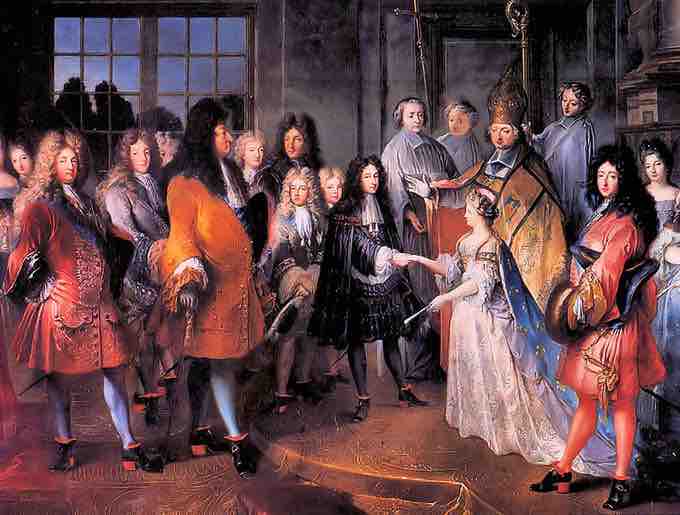There is wide cross-cultural variation in the social rules that govern the selection of marriage partners. In some communities, partner selection is an individual decision, while in others, it is a collective decision made by the partners' kin groups. Among different cultures, there is also variation in the rules regulating whom individuals can choose to marry.
Arranged Marriages
An arranged marriage is an agreement in which both parties consent to the assistance of their parents or a third party. Arranged marriage has deep roots in the behavior of royal and aristocratic families around the world. Today, arranged marriage is largely practiced in South Asia (India, Nepal, Pakistan, Bangladesh, Sri Lanka), Africa, the Middle East, and Southeast Asia. To some extent, it also occurs in parts of East Asia.
In many societies, the choice of partner is limited to suitable persons from specific social groups. In some of these societies, individuals are only allowed to select partners from the individual's social group. This is a practice called endogamy, and is common in many class and casted-based societies, like India. In other societies, on the other hand, partners can be selected from a different social group than one's own. This is called exogamy, and is common in societies that practice totemic religion, in which society is divided into a number of distinct, exogamous, totemic clans.
In cultures with fewer rules governing mate selection, the process of finding a partner might include courtship. It might also be arranged by an individual's parent through an outside party, called a matchmaker.
Forced Marriages
Forced marriage is a term used to describe a marriage in which one or both parties is married without consent, against his or her will. In a shotgun wedding, a marriage between two people is forced because of an unplanned pregnancy. Some cultures and religions consider it a moral imperative to marry in such a situation. This is based on the reasoning that premarital sex, and out-of-wedlock births, are sinful, and should be outlawed or stigmatized. As the stigma associated with out-of-wedlock births has faded over the years, and the number of such births has increased, shotgun weddings have become less common. They have also become less common because of the increasing availability of birth control, abortions, and welfare support for unwed mothers. Fewer people perceive shotgun weddings to be necessary in order to support the woman and the child.
In some societies, ranging from Central Asia to Africa, the custom of bride kidnapping still exists, in which a woman is captured by a man and his friends. This practice occasionally exists to conceal an elopement, but it also occasionally represents sexual violence.

Arranged Marriages in Europe
an arranged marriage between Louis XIV of France and Maria Theresa of Spain